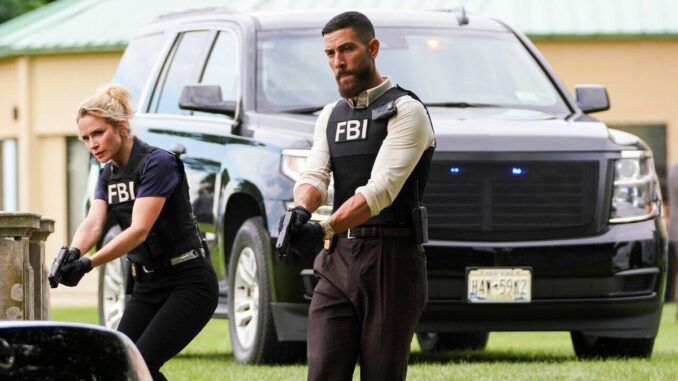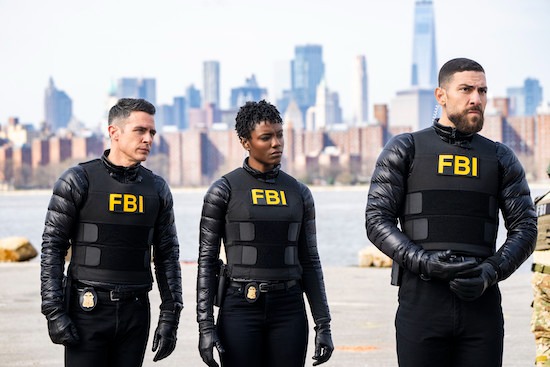
Zeeko Zaki’s Transformation: The Pressures of Image and Representation
When people see Zeeko Zaki on CBS’s FBI, they notice his commanding presence, sharp looks, and undeniable charisma. But what many don’t realize is that his journey wasn’t just about acting—it was also about transformation. Zeeko has spoken openly about his weight loss, fitness journey, and the pressures he faced in Hollywood. His story is more than physical—it’s about representation, identity, and the struggle of living in an industry obsessed with image.
In this article, we’ll break down his transformation, why it matters, and how it reflects the broader challenges actors—especially actors of Middle Eastern descent—face in Hollywood.
Who Is Zeeko Zaki?
Zeeko Zaki, born in Alexandria, Egypt, moved to the U.S. at just one month old. Growing up in Pennsylvania, he fell in love with acting during high school theater productions. His big break came when he landed the role of Special Agent Omar Adom “OA” Zidan on CBS’s hit drama FBI.
What makes Zeeko’s story stand out is not just his acting talent but his willingness to break stereotypes. For years, Hollywood often typecast Middle Eastern actors into roles of villains or extremists. Zeeko’s role as a heroic FBI agent flipped that narrative on its head.
The Start of His Transformation
When Zeeko first stepped into Hollywood, he faced a harsh reality—casting directors often overlooked him for leading roles. Instead, he was pushed toward stereotypical roles that didn’t reflect who he truly was. He knew he had the talent, but the industry demanded something else: a physical transformation.
Zeeko openly admitted that he dropped around 100 pounds over several years. His motivation wasn’t vanity—it was survival in Hollywood. In his own words, shedding weight gave him opportunities he might never have received otherwise.
The Pressures of Hollywood Image
Hollywood has long been a place where appearance often outweighs talent. Actors are expected to fit a mold—whether it’s a chiselled physique for men or slim perfection for women. For Zeeko, the pressure was magnified by his cultural background.
Being Middle Eastern in the industry, he was already fighting stereotypes. But adding weight on top of that made it harder for him to be seen beyond certain roles. The message was clear: if he wanted to play a lead hero, he had to look like one.
Balancing Authenticity and Expectation
Here’s the big question: how do you stay true to yourself while also bending to Hollywood’s demands? For Zeeko, the answer wasn’t simple.
On one hand, he embraced his transformation as a chance to step into new roles and redefine what audiences expect from Middle Eastern actors. On the other, he acknowledged the painful truth—that his talent alone wasn’t enough. He had to reshape his body to match the image Hollywood wanted.
Zeeko’s Fitness Journey
Zeeko’s transformation didn’t happen overnight. He adopted a healthier lifestyle, combining balanced nutrition with consistent workouts. He emphasized sustainability—no quick fixes, no crash diets.
He focused on:
-
Weight training to build lean muscle.
-
Cardio exercises like running and cycling.
-
Mindful eating with a focus on whole foods, not fad diets.
-
Mental wellness, reminding himself that transformation was as much mental as physical.
Redefining Representation on Screen
Zeeko’s success goes far beyond his personal fitness. By taking on the role of a hero in FBI, he shattered stereotypes. For decades, Middle Eastern men were portrayed negatively in Hollywood. Zeeko’s portrayal of OA Zidan gave millions of viewers a different perspective—a Middle Eastern hero working to protect America.
This representation matters. Young Arab-American kids now see themselves in a positive light on mainstream television, and that impact cannot be overstated.
The Burden of Being a Role Model
With representation comes responsibility. Zeeko admitted he feels the weight of being one of the few Middle Eastern actors in such a prominent role. Fans look up to him, critics watch him closely, and Hollywood sees him as proof that diverse representation works.
But here’s the flip side—this also puts added pressure on him to maintain his image. The industry and fans alike now expect him to always embody that “ideal” look and role, leaving little room for mistakes.
Criticism and Praise
Zeeko’s transformation brought applause, but it also raised questions. Some praised his discipline and admired his commitment. Others criticized the idea that he had to transform at all just to succeed. Shouldn’t talent outweigh looks?
The debate highlights a larger problem: Hollywood continues to judge actors more for their bodies than their abilities. Zeeko’s case just happens to shine a light on it.

Why His Story Resonates
Zeeko’s journey resonates because it’s deeply relatable. How many of us have felt judged for how we look rather than who we are? His transformation is a reminder of the universal struggle between self-acceptance and societal pressure.
He’s proof that with resilience and determination, it’s possible to rise above stereotypes—but also a sobering example of the sacrifices it sometimes takes.
Middle Eastern Representation in Hollywood
Zeeko’s story ties into a bigger picture: the slow but growing diversity in Hollywood. For years, Middle Eastern actors were pigeonholed into negative roles. Thanks to stars like Zeeko, that narrative is changing.
Shows like FBI prove that representation matters not only for fairness but also for storytelling. Audiences crave authentic, diverse characters, and networks are finally starting to listen.
The Mental Side of Transformation
Physical change is visible, but the mental toll often stays hidden. Zeeko has spoken about the challenges of balancing his career with personal acceptance. Even after losing weight, the question lingers: was it for him, or for Hollywood?
This struggle mirrors what many people face in their own lives—transforming to fit expectations rather than personal desires.
Hollywood’s Double Standard
Here’s the harsh truth: Hollywood celebrates when an actor loses weight but rarely questions why they had to do it in the first place. It’s a double standard that reinforces unhealthy ideals.
Zeeko’s case illustrates how this system forces talented actors to change themselves to be considered “marketable.” Until Hollywood redefines beauty and strength, these pressures will remain.
What We Can Learn from Zeeko’s Transformation
Zeeko’s story isn’t just about an actor changing his body—it’s about resilience, representation, and the fight for equality in entertainment. His journey teaches us:
-
Representation changes lives.
-
Talent and hard work matter, but image still holds power in Hollywood.
-
Transformation should be about health and growth, not just fitting an image.
The Future of Representation
As Hollywood slowly shifts, stars like Zeeko pave the way for future actors. His success proves that audiences want diverse heroes and authentic stories. The hope is that one day, no actor will feel pressured to transform just to be accepted.
Conclusion
Zeeko Zaki’s transformation is more than a fitness story—it’s a reflection of Hollywood’s pressures and the power of representation. His journey shows us both the challenges and victories of breaking stereotypes. While the industry still has a long way to go, actors like Zeeko are leading the charge, reminding us that diversity and authenticity matter more than image.
FAQs
1. How much weight did Zeeko Zaki lose for his transformation?
Zeeko reportedly lost around 100 pounds over several years through sustainable fitness and lifestyle changes.
2. Did Zeeko Zaki lose weight for a role?
While not tied to one role, his transformation helped him access more opportunities in Hollywood, including his lead role on FBI.
3. Why is Zeeko Zaki’s role on FBI significant?
It’s significant because he plays a Middle Eastern hero, challenging decades of negative Hollywood stereotypes.
4. Does Zeeko Zaki feel pressured to maintain his physique?
Yes, he has admitted that maintaining his image adds pressure, especially as a role model for representation.
5. What impact has Zeeko Zaki had on Hollywood representation?
Zeeko has helped redefine how Middle Eastern actors are viewed, proving they can lead as heroes in mainstream American television.